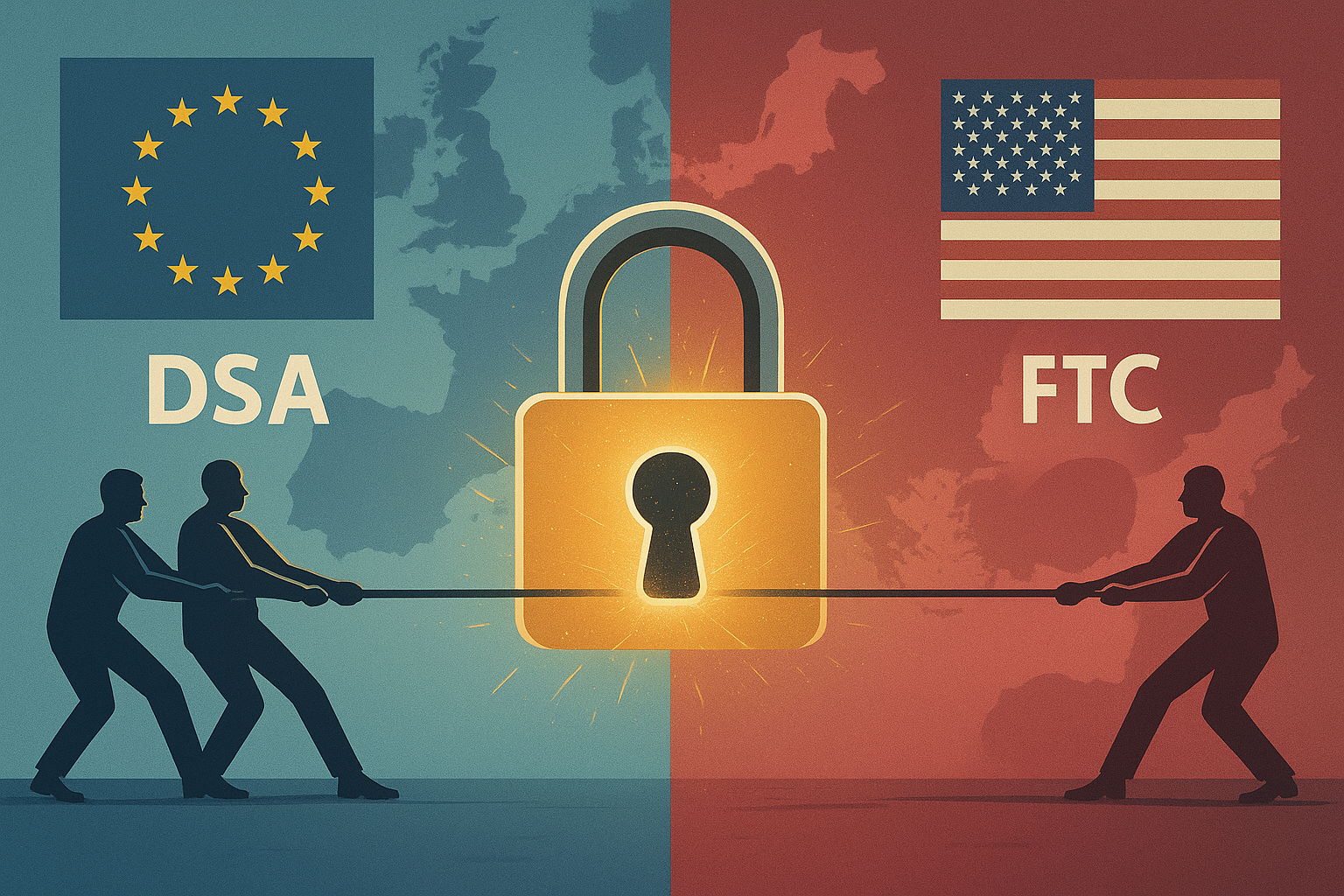FTC Undermines the DSA: A New Front in Data Security Policy

FTC Pushes Back Against the DSA
On August 21, 2025, FTC Chairman Andrew N. Ferguson sent letters to major US tech companies, warning them not to weaken data security or censor Americans at the request of foreign governments. The timing and tone of these letters make it clear: the FTC is pushing back against the European Union’s Digital Services Act (DSA) and similar laws, which aim to regulate online platforms and protect users—but also require companies to moderate content and, in some cases, weaken encryption.
What Is the DSA?
The DSA is a sweeping EU regulation designed to make the internet safer and more transparent. It requires platforms to remove illegal content, share data with authorities, and take steps to protect users. But critics argue that it incentivizes censorship and could force companies to compromise on security, especially around end-to-end encryption.
FTC’s Message: Don’t Weaken US Data Security
Chairman Ferguson’s letter warns that complying with foreign laws like the DSA or the UK’s Online Safety Act could erode Americans’ freedoms and expose them to surveillance, identity theft, and fraud. The FTC reminds companies that they must still comply with US law, including the FTC Act’s prohibition against unfair and deceptive practices. If a company promises strong encryption but weakens it to satisfy foreign governments, that could be considered deceptive—and illegal—under US law.
The Global Privacy Tug-of-War
This move by the FTC sets up a direct conflict between US and EU regulators. US companies are now caught between two sets of rules: one demanding more moderation and less privacy, the other insisting on strong protections for American users. The result? More uncertainty for tech companies, and potentially less privacy for everyone.
What’s Next?
As the DSA takes effect, expect more clashes between US and EU regulators. For users, the best defense is to stay informed and demand transparency from the platforms they use. The FTC’s stance is clear: American data security should not be sacrificed for foreign laws.
Why European Users Should Switch to European Alternatives
With the FTC actively discouraging US companies from adhering to European privacy laws, European users face increased risks to their data privacy and security. US-based platforms may prioritize American legal requirements over European protections, leaving EU users exposed to weaker safeguards, surveillance, and potential misuse of personal data.
Switching to European alternatives is crucial for several reasons:
- Data Sovereignty: European companies are subject to EU regulations like the DSA and GDPR, which are designed to protect user rights and privacy.
- Stronger Privacy Protections: EU-based services are more likely to uphold robust encryption and resist demands to weaken security for foreign governments.
- Accountability: European providers are directly answerable to EU authorities, making it easier for users to seek recourse in case of violations.
- Support for Local Innovation: Choosing European platforms helps foster a competitive tech ecosystem that prioritizes user interests and privacy.
In light of the FTC’s position, European users should carefully consider the risks of relying on US-based services and actively seek out trustworthy European alternatives to safeguard their digital lives.
Sources: FTC Press Release